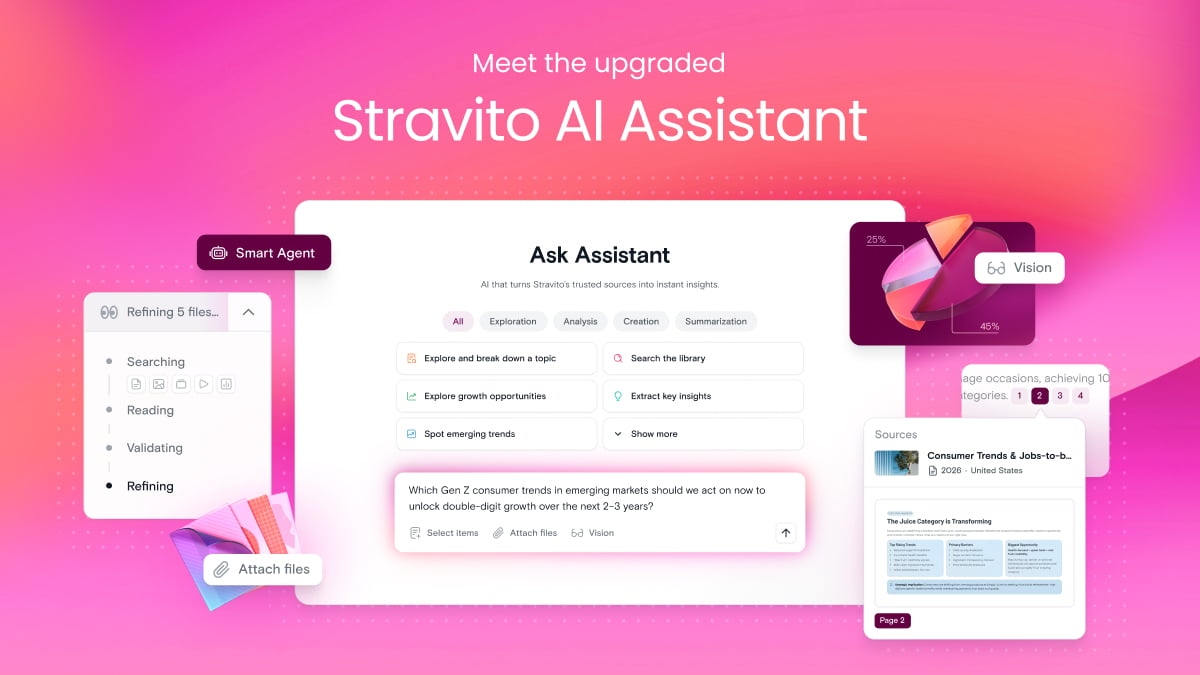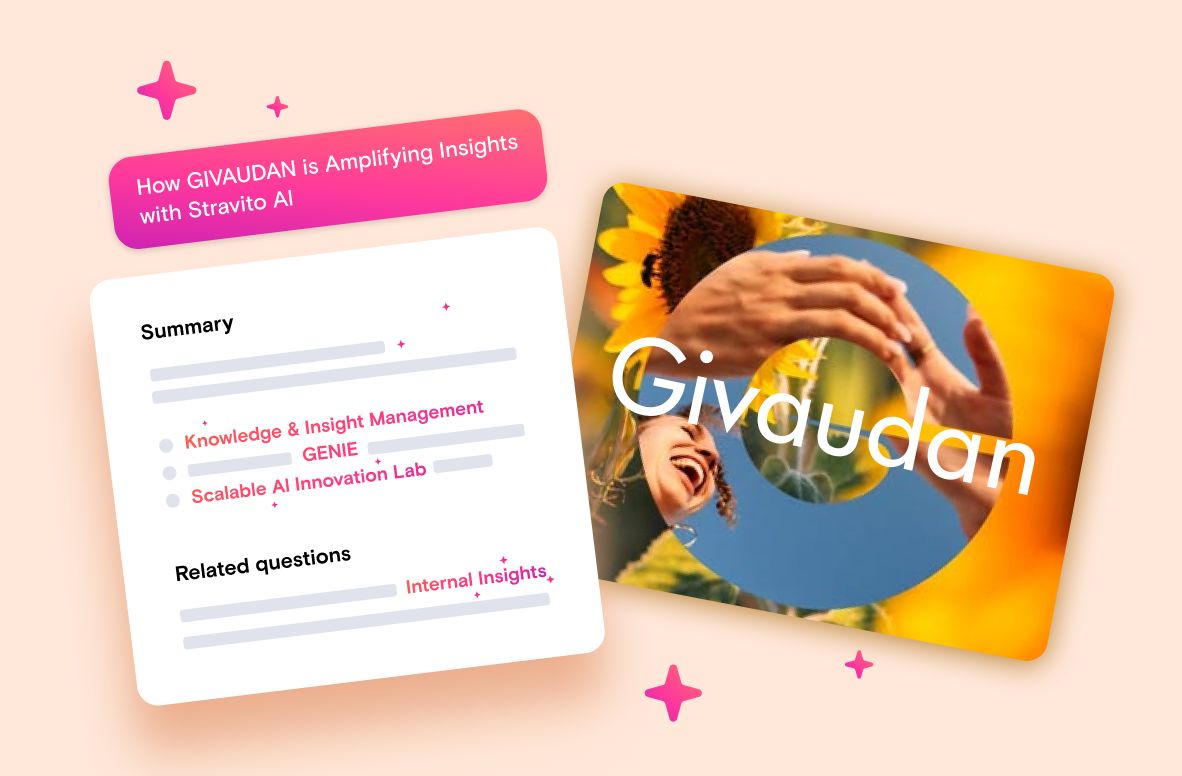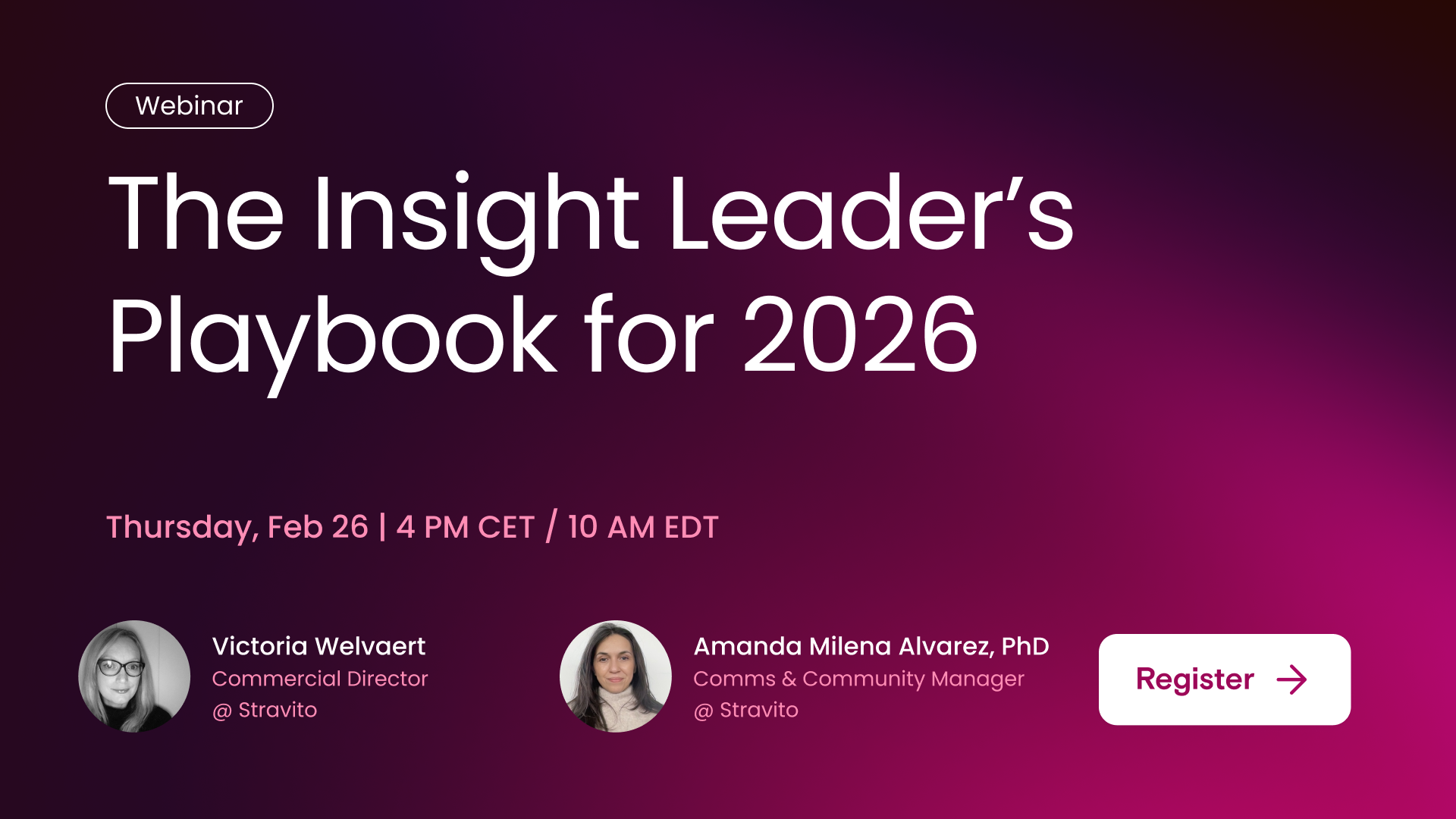During this session that originally aired at IIeX Europe 2021, Edwin Taborda, Global Insights Director at Electrolux, shares his advice and learnings from leading a global initiative to centralize their knowledge and insights with the help of Stravito. With over a decade of experience from leading CPG companies like Procter & Gamble, Mondelez, and Kimberly-Clark, Edwin’s passion for brand building has led him to develop impressive expertise in Consumer and Market understanding. Edwin has a degree in International Negotiations and Organizations from EAFIT University.
We've included some highlights from the session below, but you can also watch the full-length recording here.
-What do you do as a Global Insights Director at Electrolux? Is there such a thing as a typical day for you?
ET: Well, I think that's a very good question, Thor. It's difficult to talk about a typical day since every day is kind of a new adventure. But regarding my current role, the people who know me will probably expect me to say three things.
The first one is as a team leader. So in this hat, I lead the Electrolux Global Insights team. And probably, instead of leading, I'd say I work to keep our insights family integrated and connected. And as you probably know, at Electrolux, we are committed to drive a real change for people and for the health of our planet. And it is summarized in our purpose, which is stated as, "Shape living for the better."
In our DNA, we have making the everyday into a better experience for our consumers, and I like to think that's also what I work to do for the Global Insights community. So, basically, mapping our vision and the contributions we want to make to the company, integrating our experience area insights. We’re organized into three experience areas that are called Taste, Care, and Wellbeing, and we connect them with our Business Area insights work.
And our Business Areas are our geographies: Latin America, North America, Europe, Asia Pacific, Middle East, and Africa. So it’s a cross-organizational and cross -geographical integrative approach. At the same time, I work together with other functions to drive synergies and accelerate our progress towards our purpose.
In our DNA, we have making the everyday into a better experience for our consumers, and I like to that's also what I work to do for the Global Insights community.
For example, I work very close with Design to find the best research approach to answer some of our key questions, to drive efficiencies on how design and insights can bring consumer and human centricity to the business, and how we continue to integrate other functions with this. I’d summarize this hat as an integrator role, someone intending to put things together, to bring my piece of the puzzle for the bigger picture.
The second hat I wear is as a business partner. So, as mentioned, Electrolux is organized by three experience areas: Taste, Care, and Wellbeing, and I am currently supporting the taste experience area. I think taste is an exciting one. And I support this global taste team on their insights-related needs. For example, imagine in the kitchen of the future, defining our roadmap to sustainability and being part of our consumer-driven innovation process. It's really exciting for me to think that I work to make outstanding taste experiences available to everyone.
I also support the Global Brand team, and branding is one of my biggest passions. I truly believe in the power of brands, and mostly when they are built in a way that connects to the convictions and values of the people they want to engage with. And in this sense, I work with our Global Brand team to define our target audiences, to identify what are the needs, gaps, or things they are currently struggling with and where we have a place to help them, to solve for them, to work for them, and support them on their jobs-to-be-done. And also, how those needs are translated into foundational knowledge that help us to develop our brand strategies.
And together, we work to drive an insights-driven culture, to keep human centricity at the core of everything we do, and basically to help create the capabilities needed to translate insights to action in everything we do.
Then, the third hat in my current role is, how I like to see it, as a capabilities ambassador. So basically, I try to bring what the team needs to work towards the targets that I just mentioned. I’m lucky to have a really good team. For example, I have Mari–she's a really deep expert on capabilities, and she’s helped us with our knowledge democratization efforts, making available for everyone what we know as a way to better realize what we still don't.
And together, we work to drive an insights-driven culture, to keep human centricity at the core of everything we do, and basically to help create the capabilities needed to translate insights into action in everything we do.
-Could you describe some of the pains and the challenges you were facing when you decided to change the status quo and build more of an insights culture at Electrolux?
ET: Absolutely. I think it's, again, a very good question, and there are a lot of things we find in context. I will try to summarize some of them. The company has been in place for more than 100 years, so of course, when you have that history, you have habits, you have ways of working, you have ideas that have been with you for a long time, and therefore create what I call inertia. Corporate inertia is something that we always face when we want to drive change, or when we want to drive something different.
In the sense of knowledge democratization, as I want to think of my relationship to Stravito, I think there were also behaviors that were linked to old habits and practices. Before, people used to have their knowledge in their hard discs or drives. I also found a lot of competing platforms, I would say. Teams sites, for example, that were really useful for teams to share their documents and work together, but they still had that specific team scope.
We take a lot of care of our production lines, our robots, our machines, but also research data is an asset. And the fewer people that are exposed to it, then the lower the ROI could be.
And I found a lot of knowledge sitting on different hard disc drives around the world. We normally take a lot of care of our assets. Any company that produces or manufacturers products will take a lot of care of their assets. We take a lot of care of our production lines, our robots, our machines, but also research data is an asset. And the fewer people that are exposed to it, then the lower the ROI could be. That's the way we wanted to think when we started. So, basically, we found a lot of knowledge sitting in a lot of disc drives, in a lot of Teams sites around the world, but with a huge potential to increase their ROI if we were able to take it to more people.
-Why did you choose Stravito as a partner in this endeavor?
ET: Yes, absolutely, Thor. And this was a decision made in consensus with our procurement team and our financial team. There were a lot of things that we, of course, were analyzing, but I would probably highlight the intuitive aspect of Stravito and how easy it is for anyone to find what they are looking for.
In one of these discussions when we were making the decision, someone in the procurement team said, "Well, this is like having an internal Google for us," and another person asked, "Why?" And then he said, "Well, because it's pretty similar to how you use Google. You go and do your normal search. The difference is that you will find a lot of knowledge that we have in the company.”
That was at the top of the decision-making process, the feature of having a really intuitive search.
That was at the top of the decision-making process, the feature of having a really intuitive search. Also, what people liked was to have this similar to Spotify capability, which is having a playlist of your documents and tailored to you. The personalization made a really good point in the decision-making. And those were probably the top two things, but there were some other highlights, like the local language support, because some of our teams in Latin America or in Asia Pacific were expecting to have that.
For example, if they do research in Vietnam, and they wanted to have their research in their local language, or in Thailand, where documents are not necessarily always translated to English, they wanted to have those features available for them. And I remember back then, we were asking for some of these things we knew we also wanted to have, secondary sources and external data providers to be connected to the platform.
And Stravito had a very entrepreneurial spirit, like you were always open to face the challenges, even when they were not fully defined at the beginning.
And Stravito had a very entrepreneurial spirit, like you were always open to face the challenges, even when they were not fully defined at the beginning. Because back then, we didn't have completely written in stone what it was that we wanted to do, but we had an idea. And then you engaged with that idea, and you committed to work together towards achieving that, and that was basically what made the whole difference.
Register to watch the full recording






